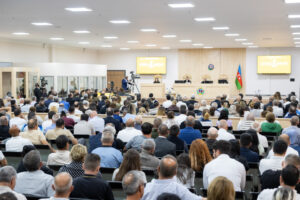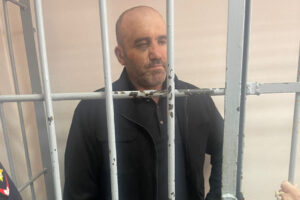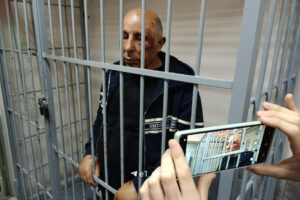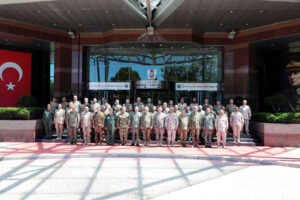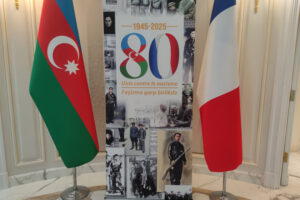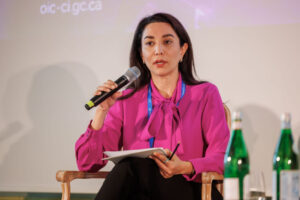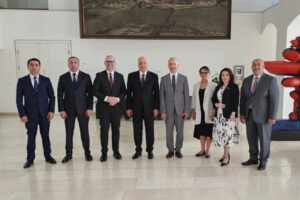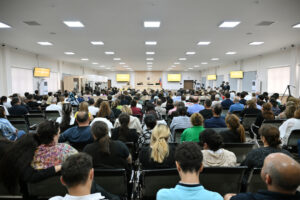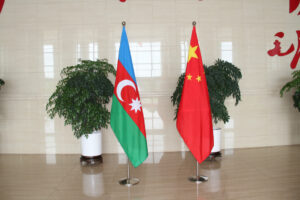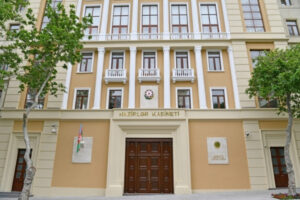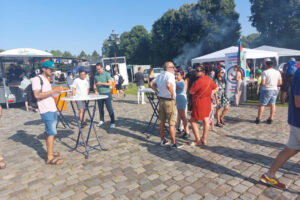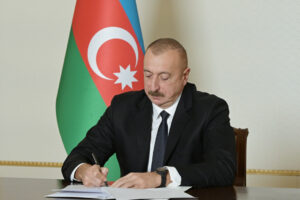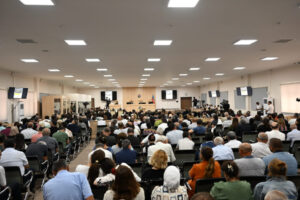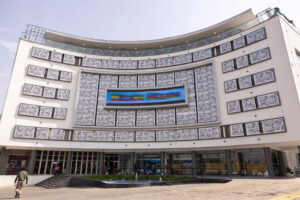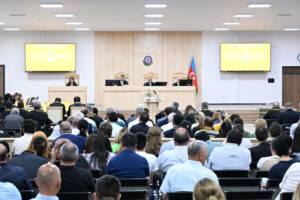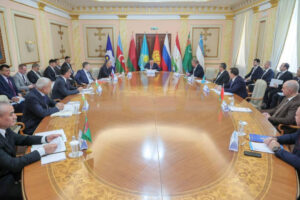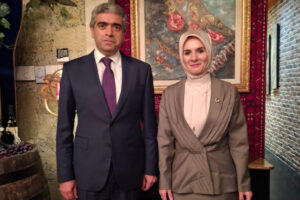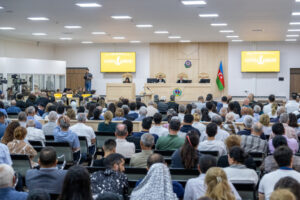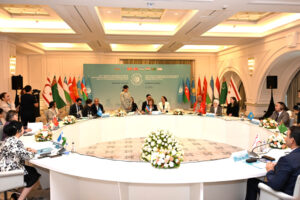Tokyo, 13 January, /AJMEDIA/
The demolition of the Azerbaijani poetess Natavan’s statue in Evian is a declaration of war on all world representatives of culture, Leyla Begim, poet, playwright, member of the Writers’ Union of Azerbaijan, public figure, and founder of the “Natavan society” in the Czech Republic, wrote in her article in the La Gazette du Caucase online newspaper based in Paris, AJMEDIA reports.
“The news that in France, a country whose declaration of human rights is based on the principles of the Enlightenment, there is talk of demolishing the monument to the Poetess Khurshudbanu Natavan, greatly upset me…
In the homeland of exceptional poets, writers, and thinkers, in the homeland of the greatest artists and sculptors, in the homeland of Rodin, we want to destroy a sculpture?!
The monument to the Azerbaijani poet Khurshudbanu Natavan, whose authors are the national sculptors of Azerbaijan Salhab Mamedov and Ali Ibadullayev, has been located for 6 years in a small public garden, named (before being renamed by order of the town hall) “Azerbaijan Garden” of the French town of Evian-les-Bains, twinned with the Azerbaijani town of Ismayilli in 2015.
This magnificent sculpture, a living embodiment of the poetry of white marble, represents not only Azerbaijan, where the Eastern and European cultures of a multinational people have coexisted for thousands of years. Culture is reflected here both in its shrines—synagogues, mosques, churches, temples of fire worshipers, and other historical monuments—among which there are sculptures and busts erected in honor of outstanding European figures such as Wolfgang Amadeus Mozart, Nikola Tesla, Charles de Gaulle, and many more.
This work dedicated to the poetess, the Woman of the East, who lived and worked in the Caucasus (Chusha, Baku, and Tiflis) in the second half of the 19th century, is the artist’s attempt to convey to descendants not only part of the spiritual wealth of its people, several tens of thousands of whom are French citizens, but also speaks of history, of the link between two peoples and two civilizations, Eastern and European.
This sculpture is a universal symbol: Khurshudbanu Natavan was not only the bearer of the life-giving word but also one of the first female public figures in the Caucasus.
She ran a literary society and was fluent in several languages, including French.
As the wife of Khasai Khan Utsmiev, who studied in France at the Academy of Saint-Cyr, Natavan personally knew many representatives of the French elite, including Alexandre Dumas. The latter, in his “Journey to the Caucasus,” describing his meeting with the Utsmiev couple in Baku, recounted his admiration for the talent, erudition, and intelligence of the Azerbaijani poetess.
This amounts to the abolition of all educational principles.
This amounts to the demolition of all diplomatic relations established between the two countries for decades.
It is the destruction of the bridge leading from the past to the future, to a more advanced civilization.
French philosopher Gilles Deleuze called artists “doctors of civilization.” And I completely agree with this formulation, because today, while the world is ablaze with the fire of wars, who, if not the authors of this sculpture, baptized “the civilization that heals” here in France, speaks to us of the unity of the world, of the universal spiritual values of the East and the West, evoking the prologue of the Gospel according to Saint John: “In the beginning was the Word”?
Listening with gratitude to the voice of the editor-in-chief of the newspaper La Gazette du Caucase, Jean Michel Brun, crying in the desert, who stood up to defend the monument, I still want to believe that the words of the great Denis Diderot on the immortality of the sculpture, “existing both for the blind and the sighted,” will ring out in a victorious cry in this monstrous battle of good and evil, of culture and obscurantism.








